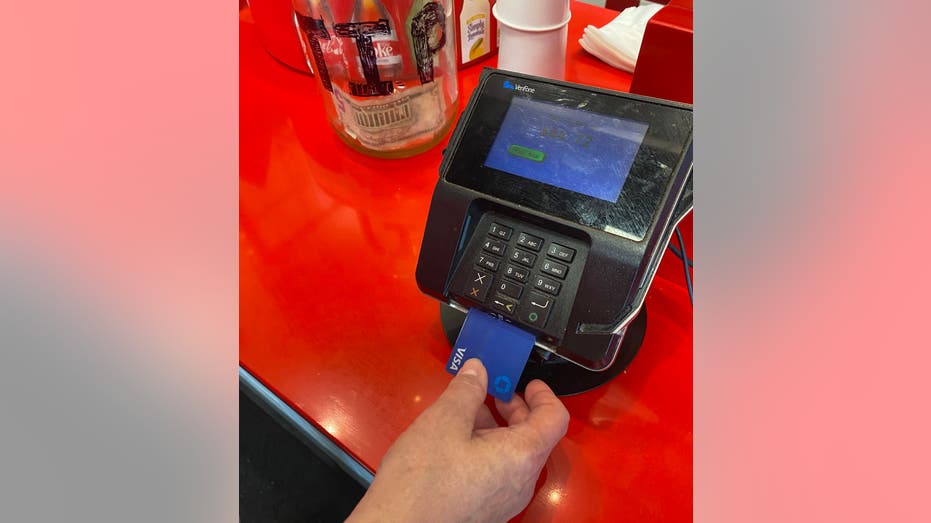With summer vacations just around the corner, millions of Americans are getting ready to cash in their hard-earned credit card rewards: points, miles and cash back they’ve accumulated all year to help cover flights, hotel stays and rising costs at the gas pump. I would know, as I’m one of them.
But what if those rewards suddenly disappeared overnight?
That’s not a hypothetical. It’s the imminent consequence of a growing political movement – mainly flying under the national radar – to regulate how credit card transactions work through a wave of state-level price control laws.
You read that right: state lawmakers nationwide are quietly coordinating a backdoor campaign to cap interchange fees, also known as “swipe fees,” that credit card networks collect from retailers each time you use your card. They say they’re doing it to help small businesses. But the actual result will be devastating: the collapse of rewards programs, higher banking fees and fewer financial tools for families already struggling with inflation.
TRUMP WINS THE FIRST ROUND AGAINST INFLATION
It’s all eerily reminiscent of the Durbin Amendment, part of the 2010 Dodd-Frank Act. That federal law capped fees on debit card transactions. What followed? Banks slashed debit rewards programs, hiked account maintenance fees and eliminated free checking for millions of Americans. Studies from Richmond and the Atlanta Federal Reserve found that nearly all retailers pocketed the savings. Ninety-eight percent didn’t pass them on to consumers. Sound familiar?
Politicians in over a dozen states and Washington, D.C., want to do the same thing to your credit cards. Bills have already advanced in Arizona, New Mexico, New York and Colorado, with more on the way. These measures would limit how banks and card issuers apply fees, particularly on portions of a transaction that include sales tax or tips, effectively kneecapping the revenue that funds credit card rewards. The New York Fed reported that 86% of interchange fee income directly funds these programs. Cut off that funding, and they’ll disappear.
And don’t think it will just be points and miles at risk. There are other implications and consequences. Banks and credit unions, especially smaller, regional ones, will be forced to compensate for lost revenue. That means higher monthly account fees, reduced access to credit, and tougher loan standards for working families and small business owners.
WHY DOGE NEEDS A CHAINSAW
This isn’t just bad economics. It’s bad governance. These state laws amount to a shadow regulatory regime that imposes sweeping price controls on a nationwide financial system that the federal government already regulates. It raises serious constitutional questions:
Do these laws violate the commerce clause? Does this constitute regulation of interstate commerce? Are swipe fee price controls illegal interstate compacts that require congressional approval?

We’re already seeing the chaos play out in Illinois. Lawmakers passed the Interchange Fee Prohibition Act (IFPA) in 2023, and now the state is tied up in a federal lawsuit. A judge has already issued a preliminary injunction exempting out-of-state banks, while Illinois banks and credit unions remain stuck under a conflicting rulebook.
Plaintiffs, including the American Bankers Association and America’s Credit Unions, are warning that the entire payments ecosystem, from merchants to processors, could break down under the pressure of this legal mess. Sound policy? Hardly.
THE COUNTRY NEEDS MORE ELECTRICITY — AND MORE ELECTRICIANS
Colorado is next in line with its own version of this failed idea: HB25-1282, the so-called “Swipe Fee Fairness and Consumer Safeguards Act.” Don’t let the name fool you. This bill is anything but fair, and it will safeguard nothing. It’s a regulatory nightmare dressed up as consumer protection, and it’s likely to spark lawsuits that taxpayers will ultimately fund.

So why are these laws moving so fast? Simple: it’s political theater. Politicians want to claim they’re “cracking down” on credit card companies. But in the end, it’s the consumer who gets punished. Rewards vanish. Fees rise. Access to credit shrinks. And hardworking families lose tools they rely on to stretch their budgets.
If Congress doesn’t step in, this patchwork of state laws could unravel the financial infrastructure that supports $9 trillion in annual credit card purchases. A trip to the grocery store, filling your tank, buying school supplies… every swipe will cost more, and deliver less.
It’s time to sound the alarm. This isn’t just about miles and points; it’s about economic freedom and financial choice. Americans deserve better than a stealth campaign of price controls imposed by 50 state capitals.
We’ve seen this movie before. Let’s not watch it again.
Read the full article here








